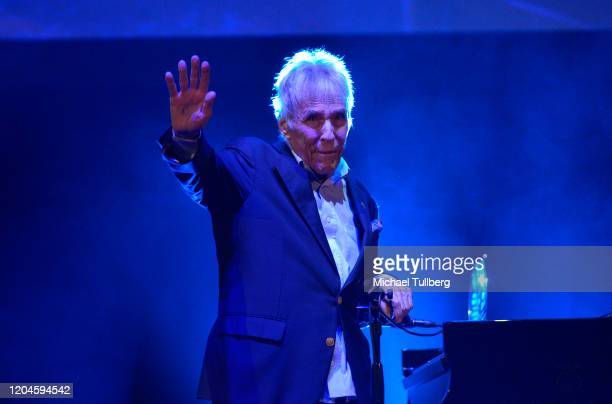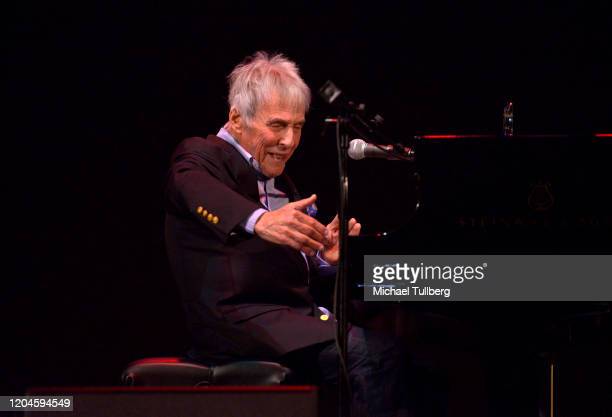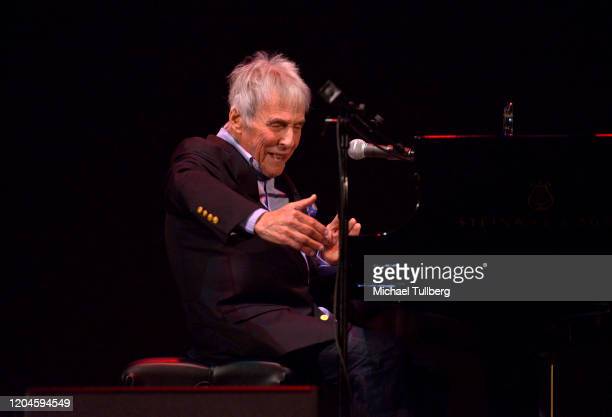
Bacharach died of natural causes on Wednesday at his Los Angeles home, according to his publicist Tina Brausam.
Burt Bacharach, a legendary pop music composer, passed away at the age of 94.
I Say A Little Prayer, Walk On By, and What The World Needs Now Is Love are among his timeless hits.
He co-wrote a number of movie themes with lyricist Hal David, including What’s New, Pussycat, Alfie, and The Look Of Love, which was a big hit for Dusty Springfield.

Burt Bacharach:-
One of the most significant songwriters of the 20th century, Bacharach was renowned for his soaring melodies and lavish orchestral arrangements.
He collaborated with musicians including Dionne Warwick, Frank Sinatra, The Beatles, Barbara Streisand, Tom Jones, Aretha Franklin, and Elvis Costello during the course of his career, scoring 73 Top 40 songs in the US and 52 in the UK.
What the World Needs Now Is Love


Wenn ich mir was wünschen dürfte
What Do You Get When You Fall In Love?

The Man Who Shot Liberty Valance


Raindrops Keep Fallin’ on My Head
Living Together, Growing Together
Bacharach’s songs spanned a variety of genres, including bossa nova, rhythm and blues, cool jazz, and standard pop, but they all had one thing in common: you could tell what they were within a few notes.
His jazz mentor, French pianist Darius Milhaud, served as the inspiration for this fashion.
When they first met at the Music Academy of the West in California in the 1940s, Bacharach recalled the composer’s advice as being, “Never be ashamed of something that’s melodic, one could whistle.”
“That was a crucial lesson I picked up from him. Remember that one forever. Never be scared of anything you can whistle at.”
Bacharach, who was born in Missouri, spent his formative years in New York City where he began piano, cello, and drum lessons.
He was enthralled by jazz and be-bop and would frequently sneak away to see his idols Dizzy Gillespie and Charlie Parker perform. In the 1940s, he started playing in his own jazz bands.
He studied music theory and composition after leaving school. He continued to perform as a concert pianist in a uniform even after a period of service in the military caused him to lose ground in his studies.
He became Marlene Dietrich’s personal conductor after touring with her after returning home, but he claimed that his early success was entirely due to luck.
“I wasn’t going after it. I was unsure of my career goals. I got swept up in the drift.

He began penning country-rock hits for Gene Pitney in the 1950s after being hired to work in New York’s Brill Building, the centre of the music business. These songs included The Man Who Shot Liberty Valance and Only Love Can Break A Heart.
With Michael Holliday’s beautiful and endearing The Story of My Life, a song that Marty Robbins had first recorded in the US, he achieved his first UK number one in 1957.
He also worked with Hal David on the song for the first time; the two of them became one of the most fruitful songwriting relationships of the 1960s.
Although their refined, dapper pop frequently clashed with the louder sounds of rock ‘n’ roll, the hits kept coming, especially when they collaborated with Dionne Warwick.

The group had 39 straight US singles over a ten-year span, including classics like Walk On By, Don’t Make Me Over, I’ll Never Fall In Love Again, and Promises, Promises.
After David and Bacharach split up, leaving Warwick without fresh material to record, she later sued Bacharach.
In 2019, Bacharach told the Guardian that the argument was “extremely expensive and regrettable,” adding, “I stupidly handled it poorly.”
He and Warwick reconciled for the 1985 charity single That’s What Friends Are For, which included vocals from Elton John, Stevie Wonder, and Gladys Knight and generated $1.5 million for the American Foundation for Aids Research (AmFar).
The song Raindrops Keep Falling on My Head, sung by BJ Thomas and included in the movie Butch Cassidy and the Sundance Kid, earned Bacharach and David a Grammy and an Oscar in 1969.
The film’s score by Burt Bacharach also took home the best original score Oscar.
The singer married four times: in 1953 to Paula Stewart, in 1958 to actress Angie Dickinson, in 1982 to Carole Bayer Sager, a longtime musical partner, and in 1993 to Jane Hansen.
The children he had with Hansen, Oliver and Raleigh, as well as his son Christopher from his union with Bayer Sager, are all still alive.